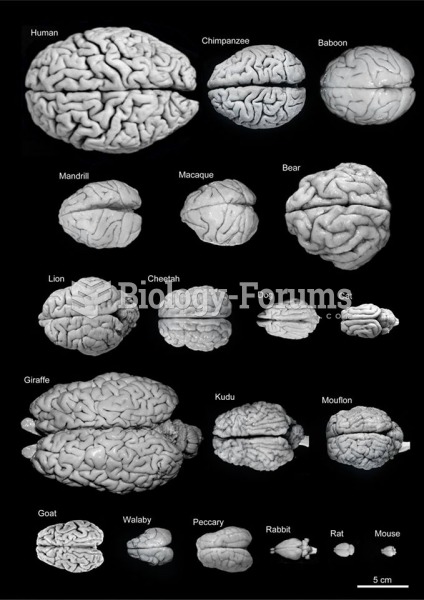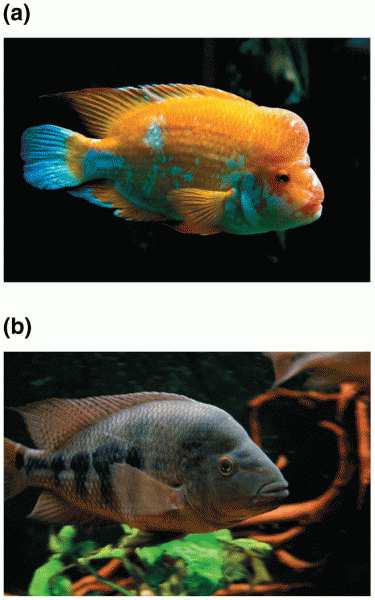Answer to Question 1
There are four key variables among species that will affect whether or not a viable population of individuals is likely to survive new conditions: (1) geographical distribution, (2) specialization to a given habitat or food supply, (3) genetic variation within the gene pool of the species, and (4) the reproductive rate relative to the rate of environmental change.
Answer to Question 2
While conducting a test of standby diesel generators, engineers disabled the power plant's safety system, withdrew the control rods, shut off the flow of steam to the generators, and decreased the flow of coolant water in the reactor. However, they did not allow for the radioactive heat energy generated by the fuel core, and the reactor began to heat up. The extra steam that was produced could not escape and had the effect of rapidly boosting the energy production of the reaction. In an attempt to quell the reactor, the engineers quickly inserted the carbon-tipped control rods. The carbon tips acted as moderators, slowing down the neutrons that were produced in the reaction. The neutrons, however, were still speedy enough to trigger more fission reactions, and the result was a split-second power surge to 100 times the maximum allowed level. Steam explosions then blew the 2,000-ton top off the reactor, the reactor melted down, and a fire was ignited in the graphite, burning for days.
Three Mile Island nuclear power plant suffered a partial meltdown as a result of human and equipment failures and a flawed design. The steam generator shut down automatically because of a lack of power in its feed-water pumps, and eventually a valve on top of the generator opened in response to the gradual buildup of pressure. Unfortunately, the valve remained stuck in the open position and drained coolant water from the reactor vessel. There were no sensors to indicate that this pressure-operated relief valve was open. Operators responded poorly to the emergency, shutting down the emergency cooling system at one point and shutting down the pumps in the reactor vessel. One instrument error compounded the problem: Gauges told operators that the reactor was full of water when, actually, it needed water badly. The core was uncovered for a time and suffered a partial meltdown. The Rancho Seco nuclear power plant in Sacramento, California, had the same flawed design, which had not been corrected completely before the voters closed the facility in 1989, 10 years after the Three Mile Island accident.
At Fukushima, natural disasters were responsible. A major earthquake followed by a wall of water (tsunami) inundated the reactor and prevented the cooling of fuel rods, which led to explosions and the release of radioactive material into the surrounding area.







